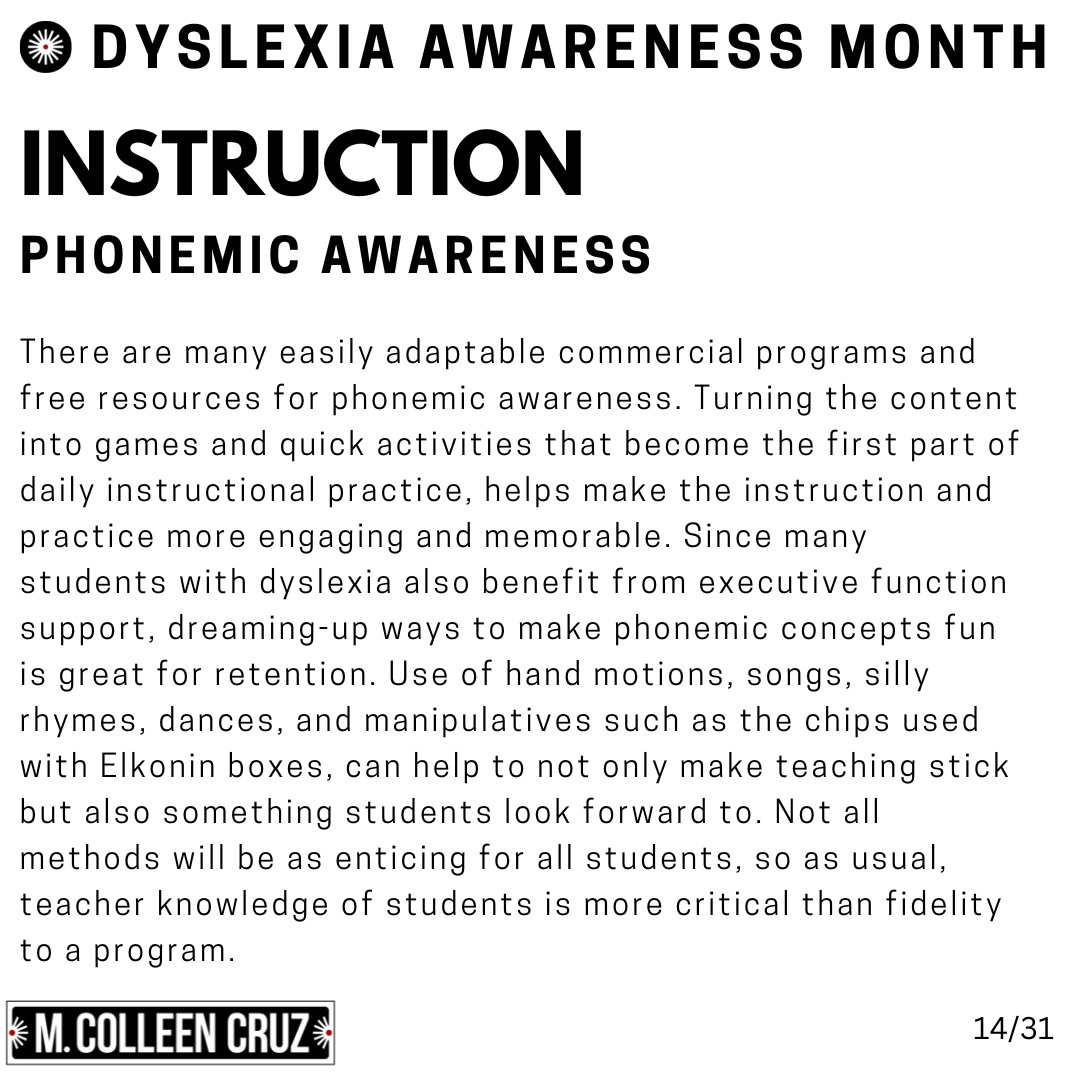
The next few days will be on instruction, starting with a foundational topic: phonemic awareness. Then I will switch gears to accommodations & ways to make classrooms dyslexia friendly. If you have topic requests, please let me know! 14/31 (13th tip)
#DyslexiaAwarenessMonth
#DyslexiaAwarenessMonth

Whether or not a student is diagnosed with dyslexia, if assessments say a student would benefit from phonemic awareness instruction, it can be a powerful driver for reading growth, even for older students. (15/21 - 14th tip)
#DyslexiaAwarenessMonth
#DyslexiaAwarenessMonth

Ways to include phonemic awareness in grades prek-12... (16/31 - 15th tip)
(This is a dense one. Let me know if there's any part I could say more about.)
#DyslexiaAwarenessMonth
(This is a dense one. Let me know if there's any part I could say more about.)
#DyslexiaAwarenessMonth

• • •
Missing some Tweet in this thread? You can try to
force a refresh





